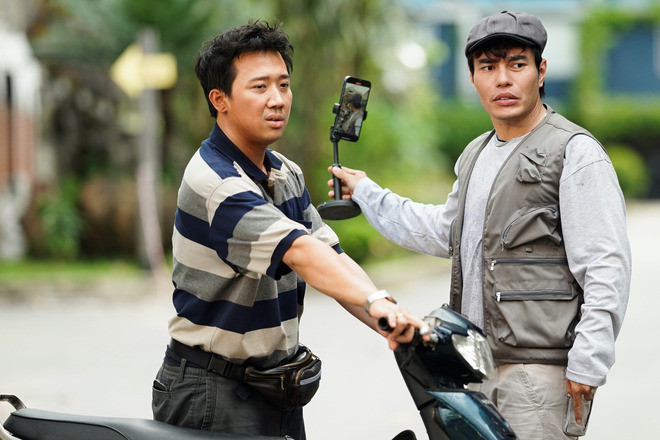
Filmmakers say they cannot do anything to protect the copyright of their products. State management agencies and legal services do not promote protection measures. Meanwhile, units have not been equipped with the tools to protect themselves.
It is nearly impossible to protect live TV broadcasting show copyrights. Since the internet has become so popular, it has been more difficult to prevent copyright infringement in places with an internet connection.
Authentic broadcasting channels that pay for copyright and produce content themselves often see their products aired on pirated websites. The websites blur television companies’ symbols and broadcast programs on the websites.
A movie can air one day and copied versions of the movie appear on illegal websites the next day. More and more websites that review films have appeared. The websites attract large audiences, thus affecting film distribution and causing losses to filmmakers.
Doan Van Viet, Deputy Minister of Culture, Sports and Tourism, said the development of science and technology, especially digital technology, has created new creative tools, and generated new distribution and usage models.
“Digital environment has posed great challenges in protecting owners’ copyright and agencies’ activities in managing and enforcing copyright and related rights," Viet said.
Luong Dinh Dung, the director of the two new movies ‘578 Magnum’ and ‘Thanh pho ngu gat’ (Drowsy City), complained that both movies have been pirated and aired online.
The production team has been trying to contact agencies and law enforcement units to seek support to stop the piracy, but it has failed. The producers found that the website that commits copyright infringement and illegal broadcasting has servers set overseas.
Dung called on watchdog agencies to set up a copyright protection center to support filmmakers like him.
Film director Vo Thanh Hoa complained that hundreds of videos copying the content of his latest comedy and action film have appeared on the internet.
''Tackling copyright infringement needs to come from the audience instead of filmmakers,” he commented, adding that large-scale infringement is discouraging filmmakers.
Dr Ngo Phuong Lan, former Director of the Cinema Department, said there are numerous pirated movie sites and though the watchdog agency has been making every effort to discover and force pirated websites to stop operation, the action still cannot solve the problem.
After one pirated site is removed, another site appears with similar domain names. Scammers have a lot of tricks to attract viewers, but filmmakers don’t know how to protect their products.
Also according to Lan, some large studios in Hollywood, including Walt Disney, want to have production representatives in Vietnam, but they hesitate to enter the market because of rampant copyright infringement.
In 2021, phimmoi.com became the first website facing criminal proceedings. However, the case has not reached the trial stage yet.
Meanwhile, a series of new pirated websites have been set up.
Do Lenh Hung Tu, chair of the Cinema Association, said documentary filmmakers usually use materials from many sources for their works, but they often say "the films use materials from colleagues", and don’t specify to whom the materials belong.
“It is a burning issue. In principle, before using materials created by other individuals and organizations, filmmakers have to ask for permission from owners in advance and clearly show notes where the materials are from,” he said.
Many filmmakers still blatantly use materials of other filmmakers without consensus from the authors.
“Filmmakers and content producers need to have necessary respect for the copyright in cinema,” he said.
A representative of Phanlaw Firm thinks that it is necessary to heighten awareness of intermediary units and social media providers, and make them understand that they need to prevent violations and go beyond just intervening when victims of violations make claims.
Tinh Le